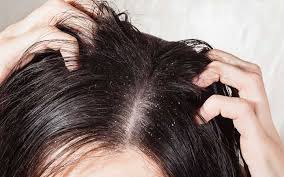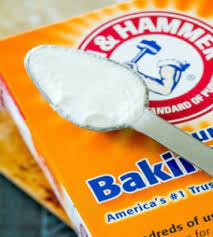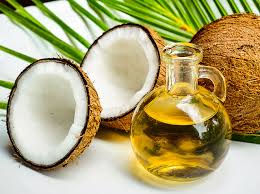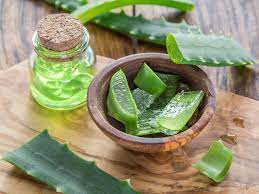Dandruff Treatment: Shampoos, Home Remedies, and Lifestyle Tips
Dandruff is a common skin condition that affects the scalp, causing flaking of dead skin cells that are visible in the hair or on clothing. It often caused by a yeast-like fungus called Malassezia, which is present on the scalp of most people and results from the scalp shedding skin cells more quickly than usual. Factors such as dry or oily skin, fungal infections, stress, hormonal changes, and certain medications can contribute to dandruff. Symptoms typically include white or yellowish flakes on the scalp, itching, and sometimes redness or irritation. While dandruff is not usually harmful, it can be frustrating and embarrassing. Management strategies include using medicated shampoos, practicing good scalp hygiene, and addressing underlying medical conditions. Additionally, natural remedies like tea tree oil, baking soda, apple cider vinegar, coconut oil, aloe vera, and olive oil are often used to alleviate symptoms. We will discuss the following topics:
Causes of Dandruff
Symptoms of Dandruff
How dandruff is managed
Important information to note
When to seek medical care

Causes of Dandruff
Dandruff can be caused by various factors, including:
- Dry skin: When the scalp becomes dry, it may lead to flaking and dandruff.
- Oily skin: Excessive oil production on the scalp can contribute to the growth of Malassezia fungus, leading to dandruff.
- Fungal infections: Malassezia, a yeast-like fungus found on the scalp, can overgrow and cause dandruff.
- Scalp sensitivity: Sensitivity to hair care products or environmental factors can trigger dandruff.
- Skin conditions: Conditions like psoriasis or eczema can cause flaking and dandruff on the scalp.
- Poor hygiene: Infrequent shampooing and inadequate scalp cleansing can lead to dandruff.
- Stress: Stress can weaken the immune system, making the scalp more susceptible to dandruff.
- Hormonal changes: Fluctuations in hormones, such as during puberty or pregnancy, can contribute to dandruff.
- Allergic reaction: Some individuals may experience dandruff as a reaction to certain hair care products or allergens.
- Environmental factors: Exposure to extreme temperatures or sunlight can aggravate dandruff symptoms.
Symptoms of Dandruff typically include:
- White or yellowish flakes of skin on the scalp, which may be visible in the hair or on clothing.
- Itching of the scalp, which can vary from mild to intense.
- Redness or irritation of the scalp, particularly in more severe cases.
- Dry flakes on the skin or hair, often accompanied by a feeling of tightness or dryness.
- Presence of scales on other areas such as eyebrows, beard, mustache, genitals, or back.
- Hair loss, though this is less common and usually occurs in more severe cases.
- Inflamed or painful skin on the scalp, particularly if scratching has caused irritation.
These symptoms can vary in severity from person to person and may worsen or improve depending on factors such as hygiene, stress levels, and treatment methods.
Dandruff can be managed through various strategies, including:
- Using medicated or gentle shampoos: Over-the-counter shampoos containing antifungal agents or other active ingredients can help control dandruff. Regular use of mild shampoos can also help maintain scalp health.
- Practicing good scalp hygiene: Regular shampooing with mild shampoos helps keep the scalp clean and reduces the buildup of dead skin cells and oils that can contribute to dandruff.
- Managing stress: Stress reduction techniques such as meditation, exercise, or therapy can help improve overall scalp health and reduce dandruff flare-ups.
- Consuming a healthy diet: Eating a balanced diet rich in vitamins and minerals supports overall skin health, including the scalp.
- Washing hair in lukewarm water: Hot water can strip the scalp of its natural oils, leading to dryness and potential dandruff flare-ups. Washing hair with lukewarm water is gentler on the scalp.
- Avoiding excessive oil application to the scalp: While some oils can be beneficial for scalp health, excessive oil buildup can exacerbate dandruff. Use oils sparingly and avoid applying them directly to the scalp.
- Maintaining a healthy lifestyle: Factors such as adequate sleep, regular exercise, and avoiding smoking can contribute to scalp health and reduce dandruff symptoms.
- Seeking medical advice: In severe cases or if dandruff persists despite home remedies, consulting a doctor or dermatologist is recommended. They can prescribe prescription medications or recommend more intensive treatments tailored to individual needs.
- Using natural remedies: Natural remedies like tea tree oil, baking soda, apple cider vinegar, coconut oil, aloe vera, and olive oil may help alleviate dandruff symptoms for some individuals. These remedies should be used cautiously and discontinued if adverse reactions occur.
Tea tree oil

Tea tree oil can help to control the growth of this fungus, reducing dandruff symptoms.
To use tea tree oil for dandruff, you can add a few drops of the oil to your shampoo or conditioner. Alternatively, you can mix a few drops of tea tree oil with a carrier oil, such as coconut oil, and massage it into your scalp. Leave the mixture on for 10-15 minutes before rinsing it off with warm water. Repeat this treatment 2-3 times per week for best results.
It’s important to note that tea tree oil is a potent essential oil and should be used with caution. Always dilute it with a carrier oil before applying it to your scalp and do a patch test before using it for the first time to check for any allergic reactions. If you experience any adverse reactions, stop using tea tree oil immediately and consult a healthcare professional.

Baking soda, also known as sodium bicarbonate, is a common household ingredient that has a variety of uses, including as a remedy for dandruff. Baking soda can help to control dandruff by reducing the growth of the yeast that can contribute to the condition. To use baking soda for dandruff, you can mix a tablespoon of baking soda with water to form a paste. Apply the paste to your scalp, massage it in, and leave it on for a few minutes before rinsing it out with water.
It is important to note that while baking soda can be an effective remedy for dandruff for some people, it may not work for everyone. Additionally, using baking soda on your scalp too frequently or leaving it on for too long can lead to dryness and irritation. If you have any concerns or if your dandruff persists, it is recommended to consult with a dermatologist for proper diagnosis and treatment.
Apple cider vinegar

Apple cider vinegar has been claimed to be effective in treating dandruff, although there is limited scientific evidence to support this claim. Some people believe that the acidity in apple cider vinegar can help restore the pH balance of the scalp, which can reduce the growth of yeast that can lead to dandruff.
To use apple cider vinegar for dandruff, you can mix equal parts apple cider vinegar and water and apply the mixture to your scalp (¼ cup of apple cider vinegar with ¼ cup water). Let the mixture sit for about 15 minutes before rinsing it out with water. You can also try adding a few drops of tea tree oil to the mixture, as tea tree oil is believed to have antifungal properties that can help fight dandruff.
It’s important to note that apple cider vinegar can be harsh on the scalp and may cause irritation or dryness if used in excess or on sensitive skin. It’s also important to speak with a dermatologist if you have persistent dandruff, as it may be a symptom of an underlying skin condition that requires medical treatment.
Coconut oil

Coconut oil has been touted as a natural remedy for various skin and hair issues, including dandruff. However, the effectiveness of coconut oil for dandruff may vary from person to person, and scientific evidence supporting its use is limited. Some people claim that coconut oil can help alleviate dandruff due to its moisturizing and anti-fungal properties. Coconut oil contains medium-chain fatty acids, such as lauric acid, which are believed to have antimicrobial properties that may help combat fungal infections on the scalp. Additionally, coconut oil is known to have emollient properties, which may help moisturize the scalp and reduce dryness.
To use coconut oil for dandruff, you can gently massage 3 teaspoons of warm coconut oil onto your scalp, focusing on the affected areas. Leave it on for about 30 minutes to an hour, or overnight if desired, and then wash it off with a mild shampoo. Some people prefer to mix coconut oil with other ingredients like tea tree oil, lemon juice, or aloe vera for added benefits.
Aloe vera

Aloe vera is a natural plant that has been used for centuries for its medicinal properties. It is known for its soothing and moisturizing effects on the skin and scalp. When it comes to dandruff, aloe vera may help in several ways:
-
Moisturizing the scalp: Dandruff is often caused by dryness and flaking of the scalp. Aloe vera can help moisturize the scalp, reducing dryness and flakiness, which may help alleviate dandruff.
-
Anti-inflammatory properties: Aloe vera has anti-inflammatory properties that can help reduce scalp inflammation, which may be associated with dandruff. Inflammation can contribute to an itchy and irritated scalp, and aloe vera’s anti-inflammatory effects may help soothe the scalp and reduce dandruff-related symptoms.
-
Antifungal properties: Some cases of dandruff are caused by a type of yeast called Malassezia that grows on the scalp. Aloe vera has antifungal properties that may help inhibit the growth of this yeast, which could help reduce dandruff caused by Malassezia.
-
Scalp balancing: Aloe vera has a pH level similar to that of the scalp, which means it can help restore the scalp’s natural pH balance. An imbalanced scalp pH can contribute to dandruff, and using aloe vera may help restore the scalp’s natural pH and reduce dandruff symptoms.
How to use aloe vera for dandruff:
-
Aloe vera gel: You can directly apply pure aloe vera gel extracted from the aloe vera plant onto your scalp. Simply apply the gel onto your scalp, massage gently, and leave it on for 15-20 minutes before rinsing it off with water. You can do this 2-3 times a week.
-
Aloe vera shampoo: Look for shampoos that contain aloe vera as one of the main ingredients. These shampoos can help moisturize and soothe the scalp and may be beneficial for dandruff-prone scalps.
-
DIY aloe vera hair mask: You can also make a DIY hair mask by mixing aloe vera gel with other natural ingredients like honey, coconut oil, or tea tree oil, and applying it onto your scalp. Leave it on for 20-30 minutes before rinsing it off with water. This can provide additional moisturizing and anti-inflammatory benefits for your scalp.
Always perform a patch test before using aloe vera or any new product on your scalp to ensure you do not have any adverse reactions. And remember, maintaining good scalp hygiene, avoiding harsh hair products, and practicing a healthy lifestyle can also contribute to a healthy scalp and help prevent dandruff. Consult with a healthcare professional if you have any concerns about your scalp or hair health.
Olive oil

Olive oil is a type of vegetable oil that is often used in cooking and has various health benefits. However, there is limited scientific evidence to support the use of olive oil as a treatment for dandruff. While some people may claim that olive oil can help alleviate dandruff due to its moisturizing properties, there is limited scientific evidence to support this claim. In fact, applying olive oil to the scalp may not be beneficial for everyone and could potentially worsen dandruff symptoms in some cases.
Important information to note
- The above remedies may not work for everyone. If you have severe or persistent dandruff, it’s best to consult with a dermatologist or healthcare provider for proper diagnosis and treatment. They can recommend the most appropriate treatment plan for your specific condition, ensuring effective management and addressing any underlying causes.
- Always consult a healthcare professional before trying new dandruff remedies or treatments to ensure they are suitable for your specific condition and health status.
- Be cautious of potential allergies or sensitivities to any products mentioned and discontinue use if adverse reactions occur.
- Recognize that dandruff can have various underlying causes, so it’s crucial to address these for effective and long-term management.
- Seek medical advice if you have concerns about your scalp or hair health, especially if dandruff symptoms persist or worsen.
- Follow instructions carefully when using home remedies or treatments and discontinue use if any adverse reactions are experienced.
- Understand that effective dandruff management often requires a multifaceted approach, including proper hygiene, lifestyle adjustments, and potentially medical interventions.
- Remember that dandruff is a common condition and can usually be managed with appropriate treatment and lifestyle changes.
When to seek medical care
You should consider seeking medical care for dandruff if:
- Signs of infection develop, such as increased redness, swelling, or warmth in the scalp area.
- Dandruff is severe and persistent despite home remedies and over-the-counter treatments.
- Your scalp becomes very itchy, leading to discomfort or disruption of daily activities.
- You notice cracked skin, bleeding, or open sores on the scalp, which may indicate a more serious skin condition.
- Dandruff spreads to other parts of the body, such as the face, ears, or chest.
- Your scalp becomes excessively dry or oily, causing significant discomfort or affecting your quality of life.
Disclaimer: The information provided in this content is for general informational purposes only. It is not intended as medical or healthcare advice, diagnosis, or treatment. Always seek the advice of a qualified healthcare professional with any questions you may have regarding a medical condition or healthcare decisions.

